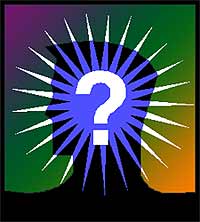 There’s a saying that if you carry a clipboard and walk quickly, it lends an air of authority that people won’t question. The same often goes for science. Use the words ?researchers discovered? or ?studies show,? and we’re inclined to believe even the most far-fetched theories. Sites like Junk Science and the Skeptic’s Dictionary aim to debunk the junk?but should we really believe the skeptics any more so?
There’s a saying that if you carry a clipboard and walk quickly, it lends an air of authority that people won’t question. The same often goes for science. Use the words ?researchers discovered? or ?studies show,? and we’re inclined to believe even the most far-fetched theories. Sites like Junk Science and the Skeptic’s Dictionary aim to debunk the junk?but should we really believe the skeptics any more so?
Naturally, there are plenty of facts to dispute, even in the supposedly empirical world of science. It’s tempting, of course, to assume that It’s all very black and white. Scientists perform an experiment, the results can be verified (or not), and That’s the end of it. But things aren’t quite that simple, especially when you take into account human error and the difficulty of replicating results.
It’s a bigger problem than you might think, and even the data we consider tried and true isn’t always reliable. As a recent article in The Economist notes, the American drug firm Amgen ?tried to replicate 53 studies that they considered landmarks in the basic science of cancer, often co-operating closely with the original researchers to ensure that their experimental technique matched the one used first time round.? Surprisingly, they were only able to replicate the original results in six out of the 53 studies. That news should give us all pause for thought.
That’s where the skeptics and debunkers come in. They aim to demystify and expose the ?facts? we tend to believe when they’re cloaked in the language of science. But don’t put on your rose-coloured glasses just yet.
One of the most popular sites out there is The Skeptic?s Dictionary. Robert T. Carroll, Ph.D., who was a full-time philosophy teacher at Sacramento City College for 30 years (you can find more details about him on his FAQ and Interviews page) created the site. It bills itself as ?a collection of strange beliefs, amusing deceptions, and dangerous delusions.? And what a collection it is. Not only does it debunk everything from ear candling to Scientology, it also tackles the very real science behind natural phenomena like ball lightning.
Some of the dubious scientific theories the Dictionary examines will come as no surprise to most people; things like doomsday cults and craniometry. Others are more complex, like electrohypersensitivity. The Dictionary also puts philosophical and scientific terms into layman’s language, like the ad hoc hypothesis and Occam’s razor.
For the most part, it takes a balanced approach. In the article on acupuncture, for instance, Carroll weighs the pros and cons well. Although he writes ?evidence from both personal testimony and from scientific studies clearly shows that acupuncture works and is an effective medical treatment for many ailments,? he also takes a thorough look at the placebo effect and discusses the very real dangers of acupuncture.
So far, so good. But It’s key to remember that no one is truly unbiased. Whether we’re writing a history text or debunking the Bermuda Triangle, we all bring our ingrained beliefs and biases to the table. It’s worth bearing in mind as you surf other articles on the Dictionary.
One good example of undisguised bias is the Junk Science site, run by Steve Milloy. He is, as his site says, a biostatistician and securities lawyer, ?a recognized leader in the fight against junk science with more than 20 years of experience,? and the author or co-author of five books.
Does Milloy know whereof he speaks when he challenges belief in global warming and the evils of trans fats? I don’t know, since many of the posts I checked were brief intros to external articles. What I do know, though, is that when anyone of any political or ideological stripe relies on prejudicial language to make a point, alarm bells start going off.
For instance, in this post on fossil fuels versus wind and solar energy, the author states that the link leads to ?a good summary of real world energy issues, sans the foaming hysteria of the enviros.? Apparently, It’s also important ?to stop the gooofies that are trying to destroy dams.? The term ?enviro fanatics? gets used too, as in this post on an article about a rare cancer.
On the one hand, the endorsements on the Junk Science site come from some reputable names, such as Frederick Seitz, the first president of the National Academy of Sciences. On the other hand, Milloy’s site uses insults and name calling to undermine opinions that disagree with him. Which raises this question: if the science really does prove someone’s point, why would he need insults to bolster his view?
So yes, It’s good to have a healthy dose of skepticism when it comes to horoscopes or trying to improve your golf swing with that nifty Q-Ray. But in our search for the scientific truth on more serious matters, like global warming or cancer research, we can’t assume the naysayers have any more credibility than the ?science? they claim to be debunking.
The most useful approach to combatting bad science? Ignore the partisan rhetoric and get your info from sources that take a balanced look at both sides of the facts. You won’t even need to wear your tinfoil hat.
S.D. Livingston is the author and creator of the Madeline M. Mystery Series for kids, as well as several books for older readers. Visit her website for information on her writing.

